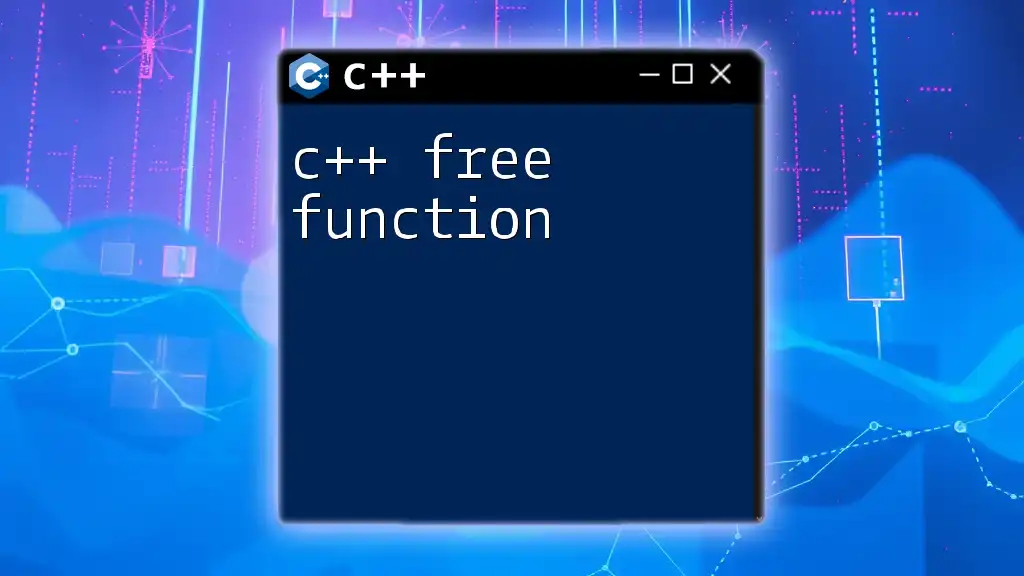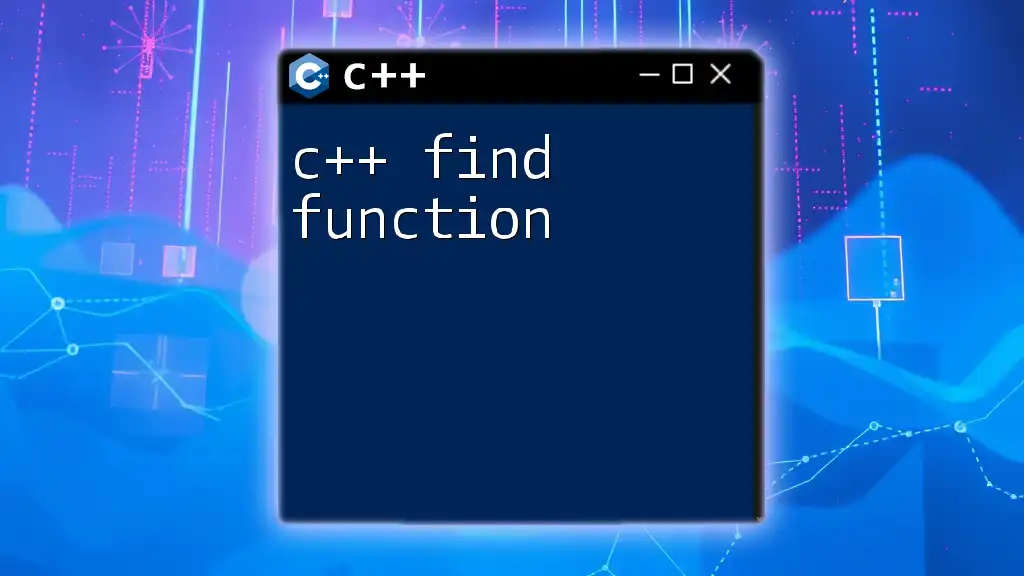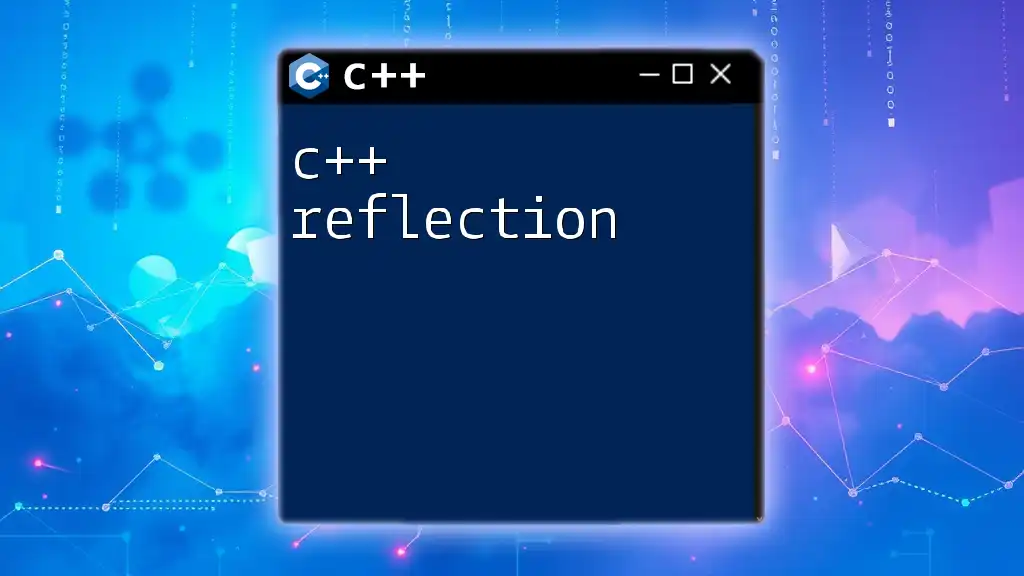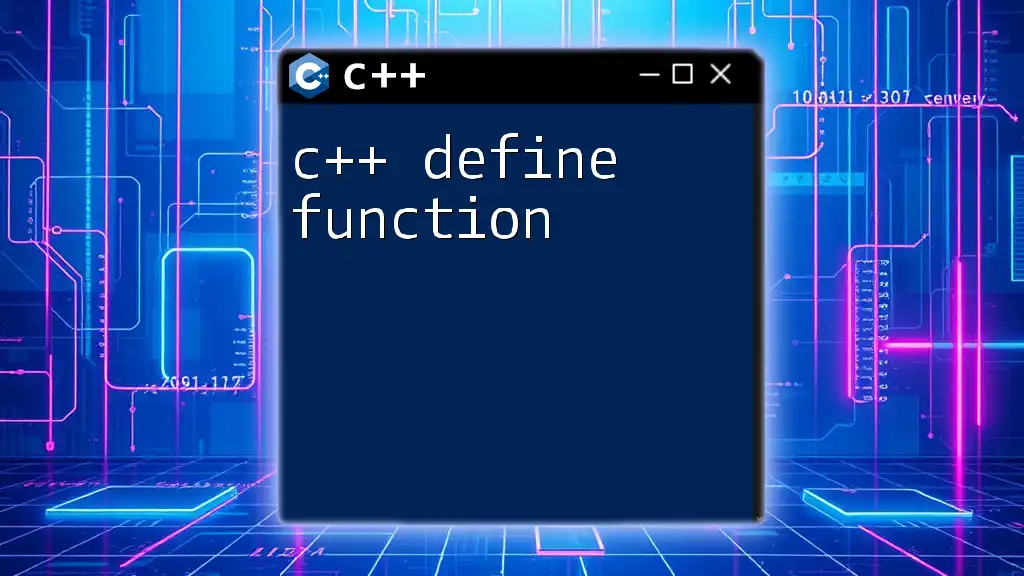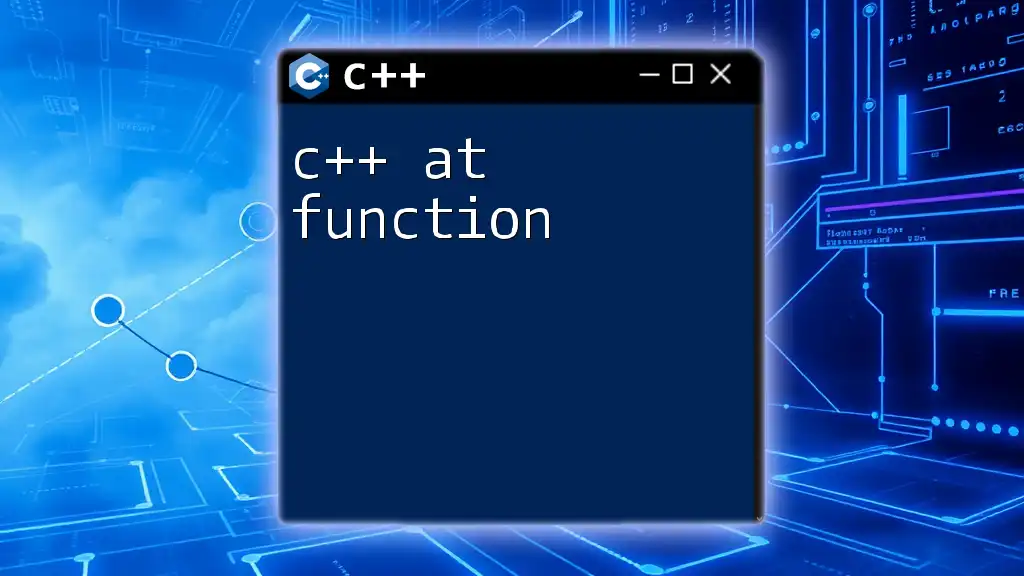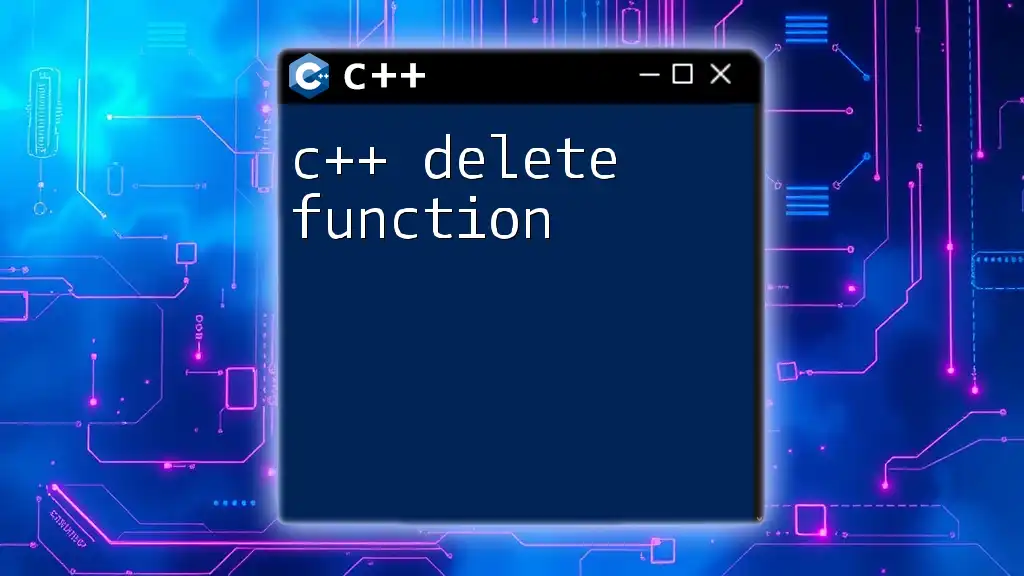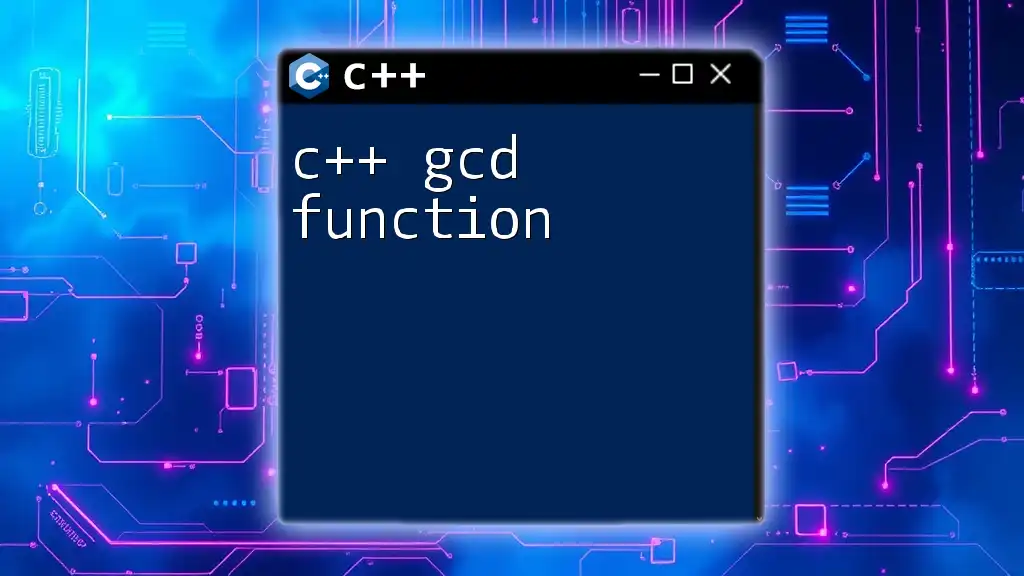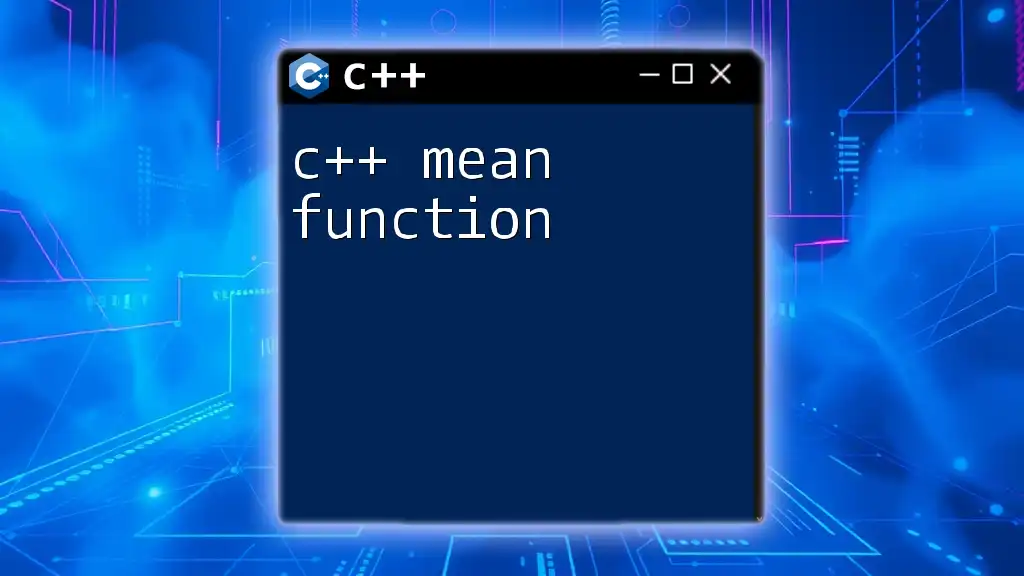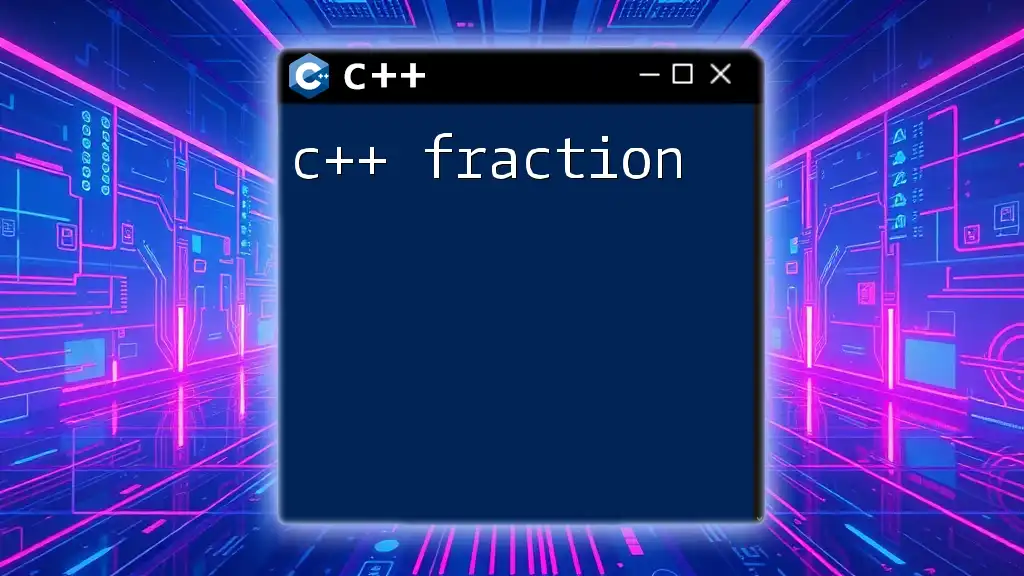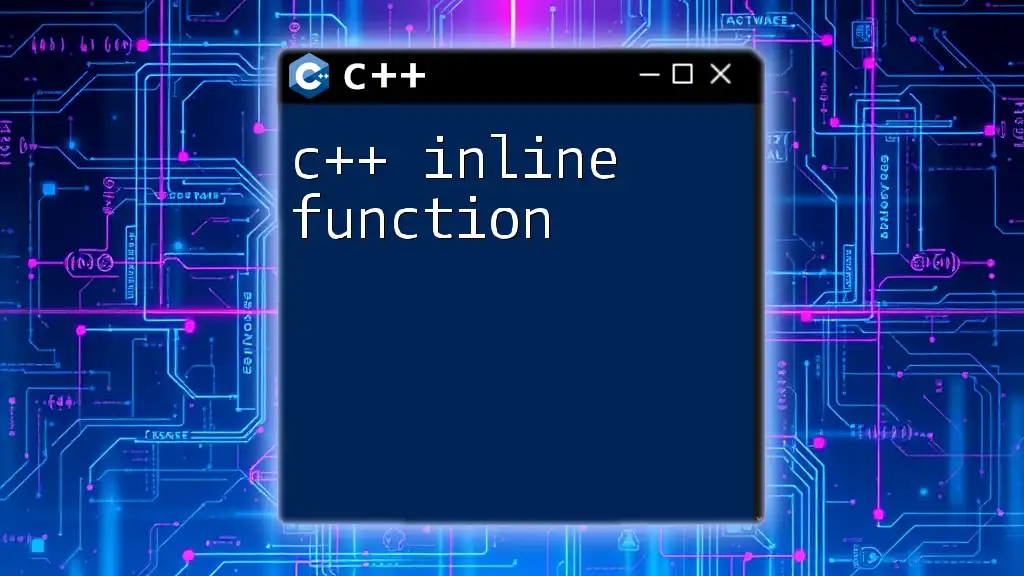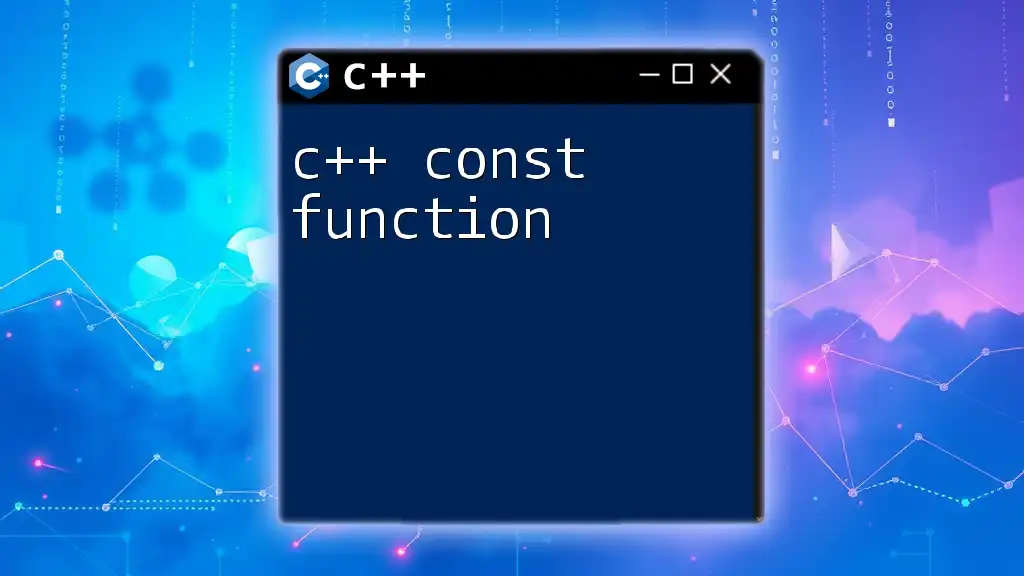A C++ free function is a function that is defined outside of any class and can be called without the need for creating an instance of a class, allowing for better modularity and code organization.
Here's a simple example:
#include <iostream>
// Free function to add two numbers
int add(int a, int b) {
return a + b;
}
int main() {
std::cout << "Sum: " << add(5, 3) << std::endl; // Output: Sum: 8
return 0;
}
Understanding C++ Free Functions
What is a Free Function?
A free function in C++ is essentially a function that is not associated with a class or object instance. Unlike member functions, which are defined within the scope of a class and require an object to be invoked, free functions exist independently. They can be called without needing an instance of a class and are defined using the standard C++ syntax.
Understanding the distinction between free functions and member functions is crucial. Member functions often access the internal state of a class, whereas free functions are typically used for operations that don't require object context.
Importance of Free Functions in C++
Free functions serve important roles in C++ programming. They promote code modularity, allowing programmers to encapsulate functionality without tying it to class hierarchies. Additionally, they can improve code readability and reusability. Since they don't rely on object state, they can be invoked from anywhere in the program, making them ideal for utility functions, mathematical operations, or helper tasks.
Compared to methods in object-oriented programming, free functions allow a more functional programming approach, making it easier to separate logic and improve maintainability.
Syntax of Free Functions in C++
Basic Syntax of a Free Function
The syntax of a free function is simple and straightforward. It typically follows this structure:
returnType functionName(parameters) {
// function body
}
For example, a basic free function that prints a greeting can be defined as follows:
void greet() {
std::cout << "Hello, World!" << std::endl;
}
Return Types and Parameters
Free functions can return various types (e.g., `void`, `int`, `double`) and accept different parameters. A function’s ability to accept parameters allows for flexibility and dynamic computations.
Here is a free function that takes two integers and returns their sum:
int add(int a, int b) {
return a + b;
}
How to Declare and Define Free Functions
Declaring a Free Function
Before defining a free function, you must declare it. This is particularly important in cases where the function definition occurs after its invocation in the source file.
The declaration provides the compiler with function information so that it knows what to expect. The syntax is:
returnType functionName(parameters);
For example:
void displayMessage();
Defining a Free Function
The actual body of the free function follows the declaration. Defining the function after its declaration can look like this:
void displayMessage() {
std::cout << "This is a free function!" << std::endl;
}
Parameters and Arguments in Free Functions
Passing by Value vs. Passing by Reference
In C++, you can pass arguments to a free function either by value or by reference.
- Passing by Value: A copy of the argument is passed, meaning modifications within the function do not affect the original variable.
- Passing by Reference: A reference to the argument is passed, which allows the function to modify the original variable.
Example:
void updateValue(int x) {
x += 10; // Passes x by value
}
void updateReference(int &y) {
y += 10; // Passes y by reference
}
Default Arguments in Free Functions
Free functions can also have default arguments, providing predefined values for parameters that aren't supplied by the caller. This can simplify function calls.
void multiply(int x, int y = 2) {
std::cout << x * y << std::endl;
}
Here, if the second argument is omitted, it defaults to `2`.
Function Overloading
What is Function Overloading?
Function overloading is C++’s capability to have multiple functions with the same name, differentiated by the type or number of their parameters. This allows for more intuitive APIs and code reuse.
Example:
int compute(int a, int b) {
return a * b;
}
double compute(double a, double b) {
return a * b;
}
Scope of Free Functions
Global vs. Local Scope
The scope of a free function refers to its visibility and accessibility. Free functions are considered to have global scope when declared outside of any class or namespace. They can access other global variables but cannot reference local variables of other functions.
For illustration:
int globalVar = 10;
void func() {
int localVar = 5;
std::cout << globalVar + localVar << std::endl; // Accesses globalVar
}
Best Practices for Using Free Functions in C++
To effectively utilize free functions, consider these best practices:
-
Use Descriptive Names: Always opt for clear and meaningful function names that convey the purpose of the function.
-
Limit Function Responsibilities: Aim to keep functions concise and focused on a single task, avoiding side effects that can lead to unexpected behavior.
-
Commenting and Documentation: Provide adequate comments explaining the function's purpose, parameters, and return values for better readability.
Common Mistakes to Avoid with Free Functions
While working with free functions, be mindful of these common mistakes:
-
Not Using Proper Namespaces: Failing to declare functions in the appropriate namespace can lead to naming conflicts and ambiguity.
-
Forget to Return Value: In non-void functions, neglecting to include a return statement can result in undefined behavior. Always ensure that the expected value is returned.
Conclusion
C++ free functions are essential tools in a programmer's toolkit, promoting modularity and reusability. By mastering the syntax, parameters, and best practices surrounding free functions, developers can write cleaner and more efficient C++ code. Understanding these concepts will solidify your ability to leverage this feature in a broad range of programming tasks.
Additional Resources
For those looking for deeper insight into C++ free functions, various resources, including textbooks, online courses, and official documentation, can provide further exploration into this vital topic. Additionally, engaging with interactive platforms will allow you to practice and refine your skills, enhancing your programming proficiency.
This approach ensures a comprehensive and engaging understanding of C++ free functions, equipping readers with essential knowledge and practical examples.

